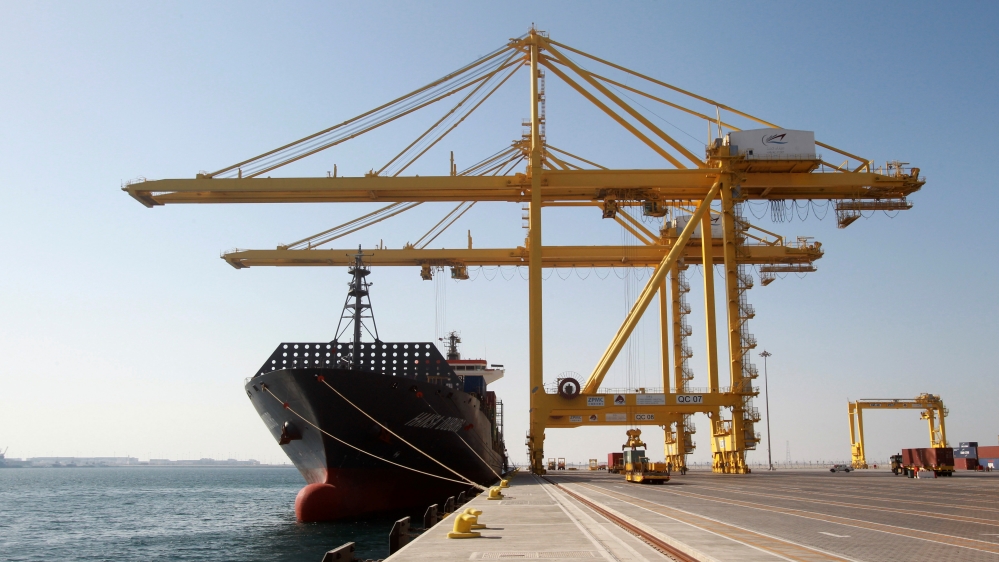Al Jazeera - The move by Turkey, Iran and Pakistan to increase bilateral trade with Qatar, following a Saudi-led blockade, has benefited all four countries, according to experts.
Saudi Arabia, the United Arab Emirates (UAE), Egypt and Bahrain cut diplomatic ties with Qatar and imposed a land, air and sea blockade on it on June 5.
Speaking on Sunday on the sidelines of the Gulf Studies Forum in Qatar's capital, Doha, analysts said the crisis has helped Iran, Pakistan and Turkey increase bilateral trade with Qatar, as well as open new commercial routes and strengthen political ties.
"Trade between Iran and Qatar increased by 117 percent in less than six months and it shows the short-term effect of this crisis and bodes well for both countries in the long term," Luciano Zaccara, an expert on Gulf and Islamic studies at Qatar University, told Al Jazeera.
Figures released by Iran's customs administration last month showed the country exported 737,500 tonnes of non-oil goods worth $67.5m to Qatar over five months - an increase in growth by 30.8 percent in volume, and 60.57 percent in terms of value when compared with the same period last year.
"Iran is also very interested in the Qatari market," added Zaccara. "They have shown their commitment by trying to accommodate its specific needs. These commercial relations will remain intact even if the [Gulf Cooperation Council] GCC crisis is resolved."
Iran and Qatar share the world's largest gas field. A few weeks after the blockade was imposed, Qatar announced plans to increase its gas production by 30 percent.
According to Zaccara, this showed the importance Qatar gives to better coordination with Iran, in terms of sharing the gas field but also on gas pricing.
The recent signing of a land transportation pact between Iran, Qatar and Turkey, aimed at cutting down the cost and transit period for goods, was also touted as a major milestone in the countries' trade relations.
Strategic allies
[caption id="" align="aligncenter" width="999"] The Gulf crisis erupted on June 5 [Naseem Zeitoon/Reuters][/caption]
The Gulf crisis erupted on June 5 [Naseem Zeitoon/Reuters][/caption]
Qatar's investment in Turkey is over $20bn, the second highest in terms of value by any country, which, according to Murad Yesitlas, an expert on geopolitics and security studies from Turkey, shows "Qatar's importance to Turkey".
Yesitlas added that the recent strengthening of military ties between the two countries is also a significant indicator of this relationship.
In June, Turkey's parliament approved a 2015 deal with Qatar aimed at strengthening military cooperation between the two states, which gave Ankara the right to establish military bases in the Emirate and deploy military forces to take part in joint exercises.
Doha-Islamabad ties
Pakistan, which has historically held strong ties with all GCC countries, chose to stay neutral in the immediate aftermath of the blockade. However, its then Prime Minister Nawaz Sharif visited Riyadh in an offer to mediate between the GCC countries.
Sharif, who spent seven years in exile in Saudi Arabia following a military coup against his government in 1999, urged all countries to "find an early resolution to the impasse" in a statement issued from his office following his return.
However, the statement went on to reaffirm "the strong commitment of the government of Pakistan to the territorial integrity and sovereignty of the Saudi kingdom".
This subtle tilt towards Saudi Arabia was down to Sharif's long history with the Kingdom and its rulers, according to Zahid Shahab Ahmed, of Pakistan's National University of Science and Technology.
"Sharif has long-standing personal interests in Saudi Arabia. His family has invested heavily in the country while they were in exile there," Ahmed told Al Jazeera.
Sharif also relied on Qatari leadership in his fight against the Panama Papers corruption charges, which is why "Pakistan found itself in a situation where it was stuck in a fight between two brothers.
"It opted for the middle ground and it has benefited Pakistan's relationship with Qatar. There has been the opening of a direct trade route between Pakistani and Qatari ports, Pakistan has agreed to send more workforce to Qatar and the LNG agreement was already in place," said Ahmed.

 QR code
QR code